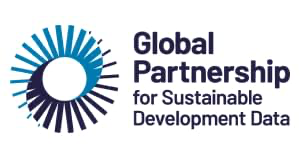

Tim spoke alongside partners from the Global Partnership for Sustainable Development Data on May 29, 9-10am EST for a virtual session on participatory data governance.
Watch the recording
Discussion notes
People must be included in decisions about how their data is used, shared, and re-used, the #DataValues Manifesto states. But this is easier said than done. In the context of complex data ecosystems, how can individuals have a meaningful say in decisions made by policy makers or businesses about their data?
This was the topic we set out to explore during this community webinar with the Data Values project. The notes below capture key points from speakers, along with analysis and reflections from Tim.
Setting the scene
Yazid Mikail, Moderator and Data Value Advocate, kicked off the session by emphasising the importance of public participation in data governance: stressing that communities are the most knowledgeable about the particular challenges they face, and the impacts data might have. Setting the session in the context of the Data Values Manifesto, Yazid also pointed the important fole of young people in shaping the future of data governance.
Following inputs from Janet McLaren (Policy Manager at the Global Partnership for Sustainable Development Data), Tim moderated a panel discussion between Lorrayne Porciuncula (Datasphere Initiative), Richard Geevers (Open Cities), Sara Roche (Data Values Advocate) and Sureya Gulzar (Mind Kind project). A number of themes from the discussion are unpacked below.
Participation and purpose
Lorrayne invited us to carefully consider the goals of and participatory data governance, and to get specific about the data governance questions. Exploring the delicate balance that sometimes needs be struck between opening up personal data for public use, and limiting data access, she noted that participation can be critical to finding the right guardrails. At the time time, different datasets raise different issues: data is not monolithic, and the questions to ask and the communities to involve will depend on an analysis of both the context of a dataset and the potential purpose to which it might be put.
People and power
Sara Rocha, data values and disability rights advocate, brought a focus to questions of accessibility, community data and leadership. Pointing to the example of many disability rights groups who have collected their own data to use in advocacy, Sara pointed to the ways in which participatory data governance is not just about institutions inviting people in, but can also be developed from the outside. Equally, Sara challenged participatory processes that do not consider the inclusion of people with disabilities, and noted the particular importance of community leadership. When there many only be a few seats at the table offered to people from marginalised backgrounds, additional responsibility may be placed upon the shoulders of community members to ‘represent’ community interests, or to play a leadership and interface role between wider communities and data governance processes.
Inviting the whole person
Building on these themes, Sureya Gulzar, from community-based mental health organsation Mind Kind (different from the Wellcome Trust Mind Kind project we’ve covered in other writing), reflected on the importance of allowing people to speak from their lived experience, and to bring their whole story into debates. Sureya’s contributions also pointed to the important role of those ‘listening’ to public inputs in recognising, legitimizing and validating people’s lived experiences: engaging with both quantiative and qualiative evidence, and recognising that individual stories are an important resource for understanding the potential impacts of data governance decisions.
Providing platforms, and meeting people where they are
Richard Geevers, from the Open Cities Lab, shared three case studies from work across Africa that pointed both to the power of building platforms for engagement, and to the importance of going to where communities are already, through communication tools like WhatsApp. Taking a power- and privilege-aware approach to process and platform design can help address some of the biases that may emerge from self-selecting engagement. Richard also described the importance of creating shared spaces, “where you could bring community representatives, companies, and local governments into the same space” and use tools and facilitation processes to help make different positions evident and up for discussion.
Innovative approaches & impact
Throughout the rest of the discussion, panelists touched on a range of approaches to participatory data governance, from capacity-building, arts-based interventions, consultative design of sandboxes, world cafe discussions, and large scale strategy processes. Critical, however, to any innovative approach will be evaluation, and a focus on impact.
We look forward to future discussions with the Data Values Project and partners.